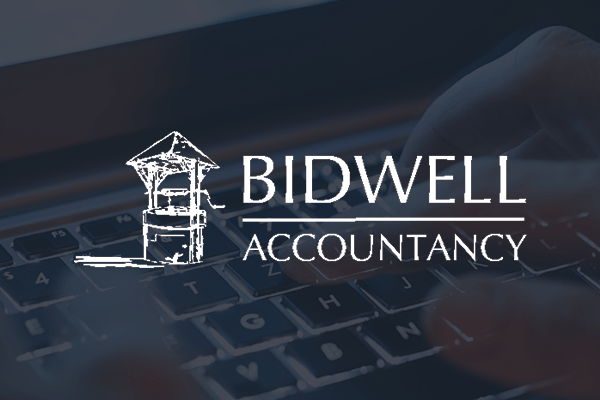November Newsletter

If you charge your electric company car or van at home, read on for some most welcome good news on tax exemptions. We have a reminder about your payday reporting obligations over the Christmas period - particularly pertinent if you pay your staff earlier than their contracted date. Check you are compliant in terms of who you pay via PAYE - there are a number of criteria to be aware of. We have some useful information for the self-employed or sole traders on the subject of your tax year and the way trading income is allocated. There are new rules for 2024-25 to implement. Our concluding news includes useful dates and deadlines to take us to the end of 2023.
Do get in touch if you need any further clarification or guidance for these issues and for any other accounting, taxation or business queries.
Bidwell Accountancy Services
Please see a list below of the services that we offer at Bidwell Accountancy.
- Limited Company Accounts
- Personal Tax Returns
- Bookkeeping
- Payroll
- Monthly/Quarterly Management Reporting Meetings
- Tax Planning
- Business Planning
- Cashflow Forecasting
Contact us today on (01908) 380391 if you would like to discuss any of the above services.
Electric charging of company vehicles at home base
HMRC has published revised guidance concerning the charging of company cars and vans at residential properties. HMRC had previously maintained that the reimbursement of costs in relation to charging a company car or van at a residential property was a taxable benefit. This advice seemed at odds with the exemption on payments and benefits provided in connection with company cars and vans laid out in the relevant legislation.
HMRC has now confirmed, following a review of their position, that the electric charging of company vehicles at home base can now be treated as a tax-free benefit.
HMRC has published revised guidance about this change in interpretation and has stated that:
Following a review of our position, HMRC now accepts reimbursing part of a domestic energy bill, which is used to charge a company car or van, will fall within the exemption provided by section 239 ITEPA 2003.
This means that no separate charge to tax under the benefits code will arise where an employer reimburses the employee for the cost of electricity to charge their company car or van at home.
HMRC has also said that the exemption will only apply where it can be demonstrated that the electricity was used to charge the company car or van. Employers will need to make sure that any reimbursement made towards the cost of electricity relates solely to the charging of their company car or van.
Reporting early payment of wages before Christmas
There is a permanent easement in place for employers to report PAYE information in real time over the Christmas period. This can be for a number of reasons, for example, during the Christmas period the business may close meaning workers need to be paid earlier than normal.
Employers that pay wages early over the Christmas period should report their normal or contractual payday as the payment date on their Full Payment
Submission (FPS) and ensure that the FPS is submitted on or before this date. Doing this will help to protect employees’ eligibility for Universal Credit, as reporting the payday as the payment date may affect current and future entitlements.
HMRC provides the following illustrative example:
If you pay on Friday 15 December 2023 but the normal or contractual payment date is Friday 29 December 2023, you will need to report the payment date on the FPS as 29 December 2023 and ensure the submission is sent on or before 29 December 2023.
The overriding PAYE reporting obligation for employers is unaffected by this exception and remains that you must report payments on or before the date the employee is paid.
Check if you need to pay someone through PAYE
Employers usually have to pay employees through PAYE if they earn £123 or more a week (£533 a month or £6,396 a year). There is no requirement to pay self-employed workers through PAYE.
HMRC’s guidance states that:
As a general rule, someone is:
- employed if they work for you and do not have any of the risks associated with running a business; and
- self-employed if they run their own business and are responsible for its success or failure.
There are specific rules for temporary or agency workers. Employers need to operate PAYE on temporary workers that they pay directly, as long as they’re classed as an employee. There is not usually a requirement to operate PAYE if a worker is paid by an agency, unless the agency is based abroad and does not have either a trading address or a representative in the UK.
Employers that take on a new employee need to work out which tax code and starter declaration to use in their payroll software. Incorrect tax codes can lead to the new employee paying more tax than is due.
The necessary information can be collected from the employee’s P45 or by asking the new employee to complete HMRC's starter checklist (if they do not have a recent P45 - this checklist replaced the P46).
Reporting self-employed profits 2023-24
The basis of assessment reforms will change the way trading income is allocated to tax years. The changes will affect sole traders and partnerships that use an accounting date between 6 April and 30 March. There is no change to the rule for companies.
The reforms will change the basis period from a ‘current year basis’ to a ‘tax year basis’.
Under the current rules there can be overlapping basis periods. When this occurs, tax may be charged on profits twice and generate ‘overlap relief’. This overlap relief can be used on the cessation of a business or when an accounting date is changed. The new method of using a ‘tax year basis’ will remove the basis period rules and prevents the creation of further overlap relief.
The new rules will come into effect in the 2024-25 tax year and the current 2023-24 tax year is known as the ‘transition year’. During the transitional year, all businesses’ basis periods will be aligned to the tax year and all outstanding overlap relief can be used against profits for that tax year.
Affected businesses in 2023-24 will be assessed on the tax for profits for the:
- 12 month accounting period they have previously been using; and
- for the rest of the 2023-24 tax year.
Any excess profit covering more than 12 months, is known as ‘transition profit’. This can be reduced by overlap relief and the remaining profit will be spread over the next 5 tax years until 2027-28.
The changes do not affect sole traders and partnerships who draw up annual accounts to a date between 31 March and 5 April. These businesses will continue to file as usual for the 2023-24 accounting year.
Tax Diary November/December 2023
1 November 2023 - Due date for Corporation Tax due for the year ended 31 January 2023.
19 November 2023 - PAYE and NIC deductions due for month ended 5 November 2023. (If you pay your tax electronically the due date is 22 November 2023.)
19 November 2023 - Filing deadline for the CIS300 monthly return for the month ended 5 November 2023.
19 November 2023 - CIS tax deducted for the month ended 5 November 2023 is payable by today.
1 December 2023 - Due date for Corporation Tax payable for the year ended 28 February 2023.
19 December 2023 - PAYE and NIC deductions due for month ended 5 December 2023. (If you pay your tax electronically the due date is 22 December 2023).
19 December 2023 - Filing deadline for the CIS300 monthly return for the month ended 5 December 2023.
19 December 2023 - CIS tax deducted for the month ended 5 December 2023 is payable by today.
30 December 2023 - Deadline for filing 2022-23 self-assessment tax returns online to include a claim for under payments to be collected via tax code in 2024-25.

Unit 157, Milton Keynes Business Centre,
Foxhunter Drive, Milton Keynes,
Buckinghamshire, MK14 6GD
Bidwell Accountancy





